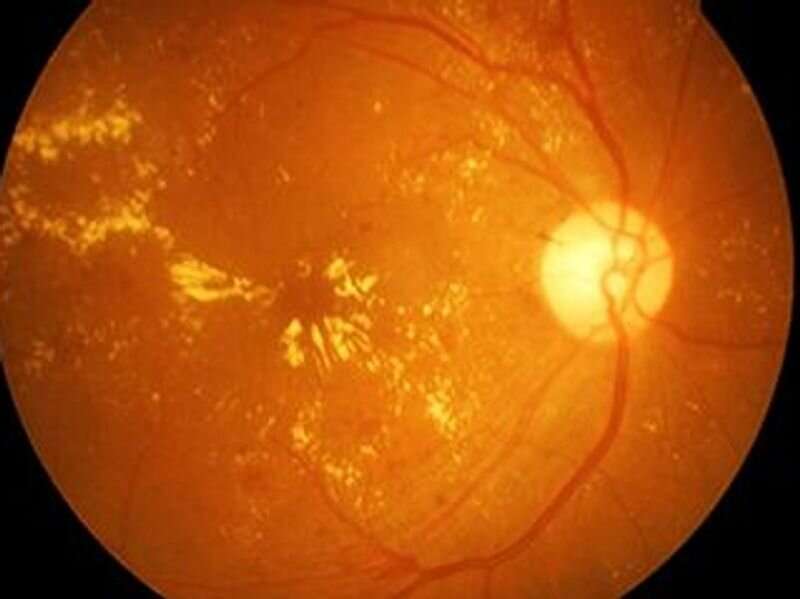Female hormone therapy not tied to retinal vascular occlusion

(HealthDay)—Filling a prescription for female hormone therapy (FHT) is not associated with an increased risk for retinal artery occlusion (RAO) or retinal vein occlusion (RVO), according to a study published online Nov. 12 in JAMA Ophthalmology.
Delu Song, M.D., from the University of Pennsylvania in Philadelphia, and colleagues conducted a multiple-cohort study using an administrative claims insurance database comparing women who filled a prescription for FHT to matched controls to examine the association with the risk for RAO or RVO. Data were included for 205,304 women who filled a prescription for FHT and 755,462 controls.
The researchers identified 41 and 68 cases (0.01 and 0.02 percent) of RAO and RVO, respectively, in the FHT cohort and 373 and 617 cases (0.05 and 0.08 percent) of RAO and RVO, respectively, in the control cohort. A Cox regression analysis showed no significant difference in hazard for RAO, RVO, or combined outcomes in the FHT cohort relative to the control cohort after inverse probability of treatment weighting. No significant associations were seen between the FHT prescription cohort and all outcomes in subanalyses stratified by age, diabetes, and hypertension.
"Our results offer evidence suggesting that filling a prescription for FHT does not increase the risk of RAO or RVO in women," the authors write.
More information: Abstract/Full Text (subscription or payment may be required)
Copyright © 2020 HealthDay. All rights reserved.




















